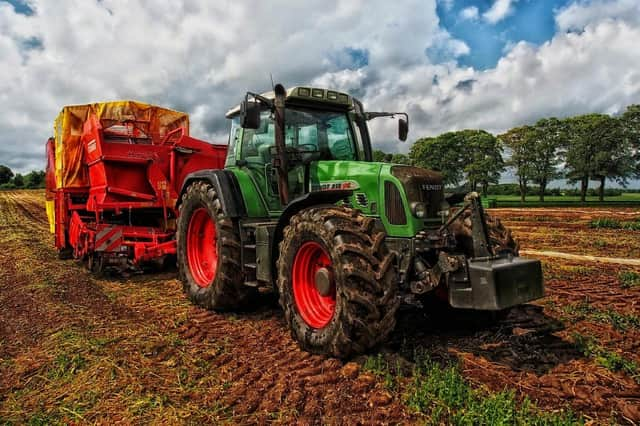Warning that 'just in time' supply chain won’t come up with the goods


However a stark warning has been issued by the agricultural merchant and supply trade body that in the midst of a perfect storm of issues, this model can no longer be relied upon – and all sectors of the farming industry need to plan further ahead.
A briefing released by the Agricultural Industries Confederation (AIC) has claimed that the combination of factors including shortages of delivery drivers and hauliers, disrupted global supply chains, rising energy costs, legacy issues from Covid-19 and EU/UK trade friction mean that the current approach to ordering inputs is approaching breaking point and could get worse as winter approaches.
Advertisement
Hide AdAdvertisement
Hide Ad“This could have far reaching impacts across the UK’s agricultural sector,” said Ed Barker, head of policy and external affairs with AIC.
“Defra, Whitehall more broadly and devolved administrations must take this seriously and contingency plan with industry for these medium to longer term challenges,” he warned.
While merchants and suppliers had done their best to maintain a resilient supply chain, said Barker, the AIC was seriously urging UK farmers and its members to plan ahead and maintain a close dialogue: “This is to ensure that on-farm supplies of seed, fertilisers and crop protection products can be made, minimising any disruption to agricultural activities for the year ahead.”
The briefing paper released this week by the AIC – whose members are involved in supplying the industry with seed, feed, fertiliser and agrichemicals – said that they were aware of the potential for serious problems in all sectors.
Stating that the UK was not self-sufficient in nitrogen fertiliser, the over-reliance on one manufacturer had been highlighted earlier in the month when both fertiliser and CO2 production had been suspended due to the sudden spike in gas prices. But the move had also been mirrored across Europe where the bulk of imports originated. And, with current shortages in place, the AIC estimated that there could be a shortfall of nitrogen fertiliser next year.
Stating that prolonged shortages of fertiliser would impact on agriculture and food production, the briefing called on industry and Government to work together to deliver sustainable and resilient supply chains, and ensure UK growers were not prevented from accessing necessary fertilisers required for food security.
On the crop protection front, the document warned that availability of active substances from China, and closures of production plants in the USA and Europe had created knock-on effects on manufacturing and availability for the UK and other markets.
Changes to regulation in the feed market since the UK left the EU also raised the possibility of reduced supplies of soya coming into the UK market, claimed the report.
But the briefing also warned that all these factors were being exacerbated by shortages of labour across the board, particularly in the transport sector.
Comments
Want to join the conversation? Please or to comment on this article.